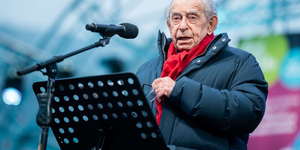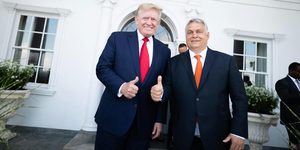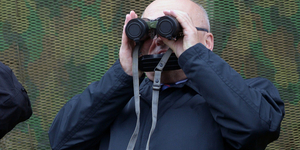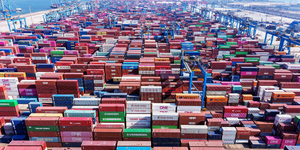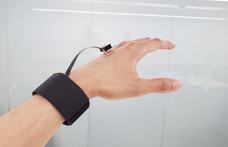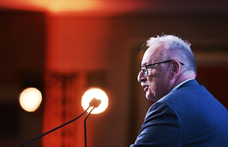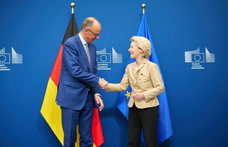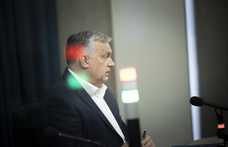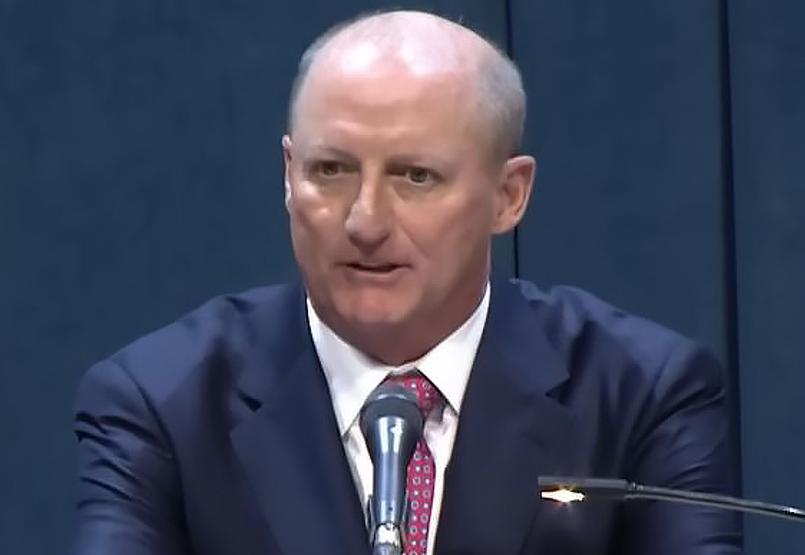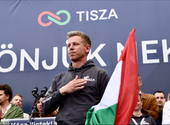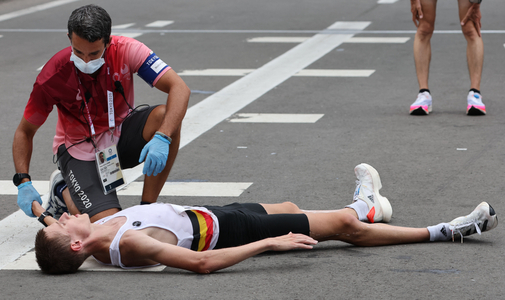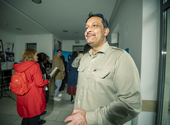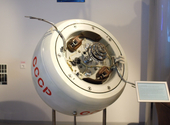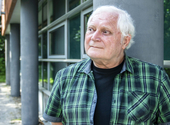Do the two reports published in February tell us any more about the autumn riots than we knew already?
We know a little bit more. We are no wiser as regards why it happened. But the two reports deliver a good summary of events, although the internal investigation commissioned by the national police chief had already covered much of this ground.
The convention is to accuse the other side of bias, dismissing the opposing point of view. Are the two reports worthless?
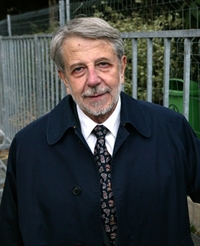 © Dudás Szabolcs |
No, both are useful reading. The Morvai report is full of valuable detail and I think it wrong to describe it as a piece of propaganda. But it is true that it doesn't address the moral and political responsibility of the Right. It fails even to acknowledge that other acts of violence were committed beyond the occupation of the TV headquarters. This is ridiculous. In this respect, the Gonczol report is more objective, because it discusses the responsibility of both sides. It even admits that police chiefs made mistakes, although it does not go as far as to discuss the responsibility of the political leadership. It makes clear that Budapest's police chief and the national police commander made many serious mistakes, but it does not say the same of Jozsef Petretei or Ferenc Gyurcsany.
The police are a governmental body in every country, but in this country it seems that politicians are unsure of this. The Right blames the government for exercising an unhealthy influence over the police, while the Socialists deny this furiously. What is the situation in practice?
There are two contradictory elements in the Morvai report. On the one hand they criticise the government for showing no leadership, on the other, they claim Ferenc Gyurcsany gave the police direct orders. Under normal circumstance, the government bears political responsibility for the activities of the police, and they therefore have the right to direct police actions. At the same time, the government may not get involved in individual cases. It is clear, however, that the rules are opaque. It should not be up to the police chiefs to interpret them. Important decisions have to be taken by the people who bear political responsibility.
Should individual manoeuvres be decided on by ministers or the prime minister?
Of course not. They should not get involved in technical issues. But they could have ordered the police to use all possible means to protect the TV headquarters, and if they failed, the police should have been forced to explain what went wrong.
Some on the right believe even the TV siege was a government provocation.
The police made many mistakes on the night of 18 September. For example, when they took back the TV headquarters, they did not ask anybody to identify themselves. This is so ridiculous that they have given ammunition to the people who are convinced the siege was a provocation. I don't think this is the case, but police failing have made the claim seem more plausible.
The government is examining Gonczol's report at this moment. What did you like about her committee's report, and what did you disagree with?
I liked the objective way in which she examined the police actions. It looks like the internal examination was her main source. But Gonczol also relies on information for the least biased of sources, like the Hungarian Civil Liberties Union and the Hungarian Helsinki Committee. It expresses opinions on the performance of the police and the right to free assembly. But I think it was inappropriate to examine the riots in the context of Hungarian history. The past certainly played a role in creating today's political tensions, but the defeat at Mohacs doesn't explain everything - because otherwise everything you write turns into a polemical newspaper column. I'm also concerned that the report only addresses the serious injuries the police action caused in passing. The loss of an eye or a concussion cannot be dismissed by saying the police acted correctly by dispersing the crowd.
Second part of the inteview (Oldaltörés)
How fair is the criticism that the Gonczol committee is not unbiased and is overly understanding towards the government, and overly critical of Fidesz.
It is not too critical of Fidesz. I told the human rights committee of Parliament that I was convinced that without Fidesz and Viktor Orban's 'invitation to dance', the whole situation would never have come about. There are forces on the far right, but these would have little influence if they did not feel that they shared Orban's views. You cannot take people seriously if they take to the streets carrying the far-right Arpad Flag while claiming they want to commemorate St Elisabeth Arpad. If you must carry a historical flag, then why not Rakoczi's freedom flag rather than Szalasi's Arpad flag?
Didn't Gonczol go too far in her report by examining the referendum proposal Fidesz made on 23 October?
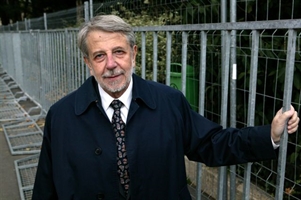 © Dudás Szabolcs |
This part of the report is a long way from the autumn riots, but it does indirectly highlight the fact that Orban is incapable of accepting two successive election defeats. That's why he keeps trying to bring down the prime minister in power, trying to force early elections. It happened when the opened fire on Medgyessy when his passed as an informant was revealed, even though Fidesz had until then accepted the Socialists' and the Hungarian Democratic Forum's view that a distinction had to be made between mere informants and full-blown agents. So I don't see the sense in demanding that Gyurcsany resign for the sake of calm. So long as somebody other than Orban is prime minister, the whole circus will continue.
What are the strengths and weaknesses of the Morvai report?
While the Gonczol report looks, if not always even-handedly, at the opposition's, the government's and the police's role, the Morvai report says nothing whatsoever about the opposition. On the contrary. The report make it seem as if the protesters had done nothing wrong apart from on 18 September - they don't mention that the unregistered demonstrations were violent from the very beginning. But where Gonczol's commission worked only from secondary sources and called no witnesses, Morvai's commission spoke to a range of injured parties and witnesses. That's the report's great strength. It's a shame that it's full of pre-conceived ideas, insisting, for example, that on 20 September, the police singled out people returning home from Kossuth ter, while even witnesses admitted that they wanted to take a look at Blaha Lujza ter. There's considerable evidence that gatherings at various places around the city were well organised. I attended a film screening at the time, where a former state secretary in the Antall government invited me to go with him to a demonstration after the film. It was clear from TV broadcasts that the police were not facing down peaceful protesters on 23 October. While the police certainly were overly violent, but it would be ridiculous to claim they purposefully hunted down peaceful protesters.
Tamas Gaudi-Nagy's chapters are also useful, in which he discusses restrictions imposed on the right to free assembly, illegal police actions and failings in the justice system. After reading the two reports, I saw a film which contained interviews with the injured, and it convincingly argues that the police used disproportionate force. But the same film was just as one-sided as the Morvai report: it shows no pictures of protesters building barricades and attacking the police, even though the various TV channels showed such pictures. The film and the report stick to the ideological line that the government in power has used 'Bolshevik means' to suppress freedom of expression. (...) It is interesting that in the passage dealing with the later Kadar era, the authors ignore all victims of police brutality apart from Viktor Orban. For example, it fails to mention that on 15 March 1988, Ottilia Solt, Gabor Demszky, Gyorgy Gado, Sandor Racz, Robert Palinkas, and one of the leaders of the Kossuth ter demonstrations, Tamas Molnar, were all arrested at dawn.
What is the report's most serious shortcoming?
It's worrying that it separates ministerial responsibility and the actual possession of power. A Justice and Order Ministry was established last year, but Petretei exercises no real oversight over the forces of law and order. It is very likely that the chancery minister is really in charge of this area, though he has no formal authority over or responsibility for such questions.
Is this just an assumption, or do you have proof?
It's pretty clear that Petretei is not in charge of the police, and that there's more going on than he knows about. But somebody must be in charge of the police.
So should we assume that Gyorgy Szilvasy, the chancery minister, overrules Kondorosi, the state secretary for law and order?
Either him, or Petretei or Gergenyi - I don't know who he overrules exactly. If this were the case, then power and responsibility would be separate, which would pose serious democratic and constitutional problems. Before the regime change, the democratic opposition demanded that the national security and the police be administered separately. The post of minister without portfolio in charge of the national security services was abolished, and so was the equivalent post of political state secretary - so national security became the direct responsibility of the chancery minister. If this is the case, then he is issuing orders to the police as well, which represents a major step backwards towards the state of affairs that reigned before 1990.
But these are just assumptions aren't they?
It's revealing that when it emerged that the barriers on Kossuth ter were both unnecessary and illegal, it was Szilvasy who spoke of national security risks. This resembles the practices we were accustomed to before 1990. Janos Kenedi once proved, for example, that when Imre Nagy was reburied it was the security services that created the rumour that extremist forces were preparing to disrupt the ceremony.
But three ombudsmen have said that the national security risks are real.
I accept that. But then you have to ask why no formal investigation has been launched, since even planning an act of terror or preparing to seize power violently is a criminal offence.
Fidesz recently made a formal request for just that to happen.
I'm curious to see what happens. Press reports said formal investigations had been launched of five individuals who were planning attacks on police and public institutions on 15 March. But they're not under arrest. It's hard to believe they're so dangerous that several hundred police officers have to be kept on alert on Kossuth ter on a normal day just because of them.

